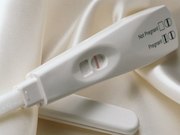Women with moderate-to-severe deficiency had a 46 percent reduction in fecundity
TUESDAY, Jan. 16, 2018 (HealthDay News) — Moderate-to-severe iodine deficiency is associated with a reduction in fecundity in women of childbearing age, according to a study published online Jan. 11 in Human Reproduction.
James L. Mills, M.D., from the National Institutes of Health in Bethesda, Md., and colleagues evaluated data (from interviews, journals, and urine samples) from 501 women participating in the LIFE Study, a population-based prospective cohort study, who had discontinued contraception within two months to become pregnant (2005 to 2009).
The researchers found that 44.3 percent of urine samples were in the deficiency range for iodine. Those with moderate-to-severe deficiency (iodine-creatinine ratios <50 μg/g) had a 46 percent reduction in fecundity versus those whose iodine-creatinine ratios were in the adequate range (adjusted fecundability odds ratio of becoming pregnant per cycle, 0.54).
“Significant delays in becoming pregnant occur at iodine concentrations that are common in women in the U.S.A. and parts of Europe,” the authors write. “Replicating these findings will be important to determine whether improving iodine status could be beneficial in improving fecundability.”
Abstract/Full Text (subscription or payment may be required)
Copyright © 2018 HealthDay. All rights reserved.








